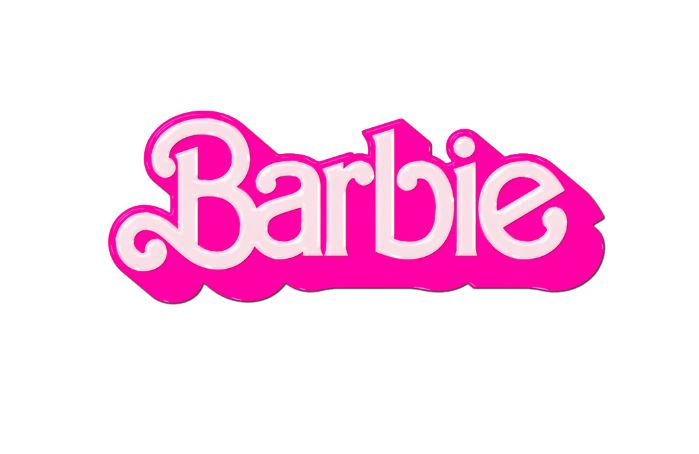A pop culture sensation, Greta Gerwig’s ‘‘Barbie’’ broke records and societal expectations for what should be considered a great inter-genre movie.
Starring the sensational Margot Robbie, ‘‘Barbie’’ follows the life of Stereotypical Barbie as she learns that Barbies did not in fact rid the “real world” of sexism and hatred. Barbieland is a utopian society, somehow in the real world and also not, in which all the Barbies released by Mattel live a very monotonous but happy life.
‘‘Barbie’’ is like a 2-year-old’s birthday cake, clearly made for a child but with flavors more enjoyed by adults. On top would be the obvious appeal to younger kids, alongside nostalgia for older generations, with pink icing, glitter, and a non-edible doll on top.
The movie incorporates not only the modern version of Barbie, but also discontinued dolls and items that have been coming out since the ‘60s. Midge, Allan, and the Barbie Remote Control Dream Car are all dolls or accessories that many adults may remember from their childhoods.
The next layer of the cake, if you will, would be strawberry. As most people over the age of 12 expected, the Barbie movie had a strong feminist message. At first Barbieland is run by women, and the Kens are never directly put down, just kind of there. But the “real world” is run by men, and women are directly and systematically kept out of real positions of power through a faux curtain of “empowerment.”
The CEO of Mattel in the movie, played by Will Ferrell, pushes for this fake version of feminism, which is very clearly not actually relevant to girls, just his idea of what they should want and like. The entire board consists of men who all cater to his skewed sense of femininity for a check, while the secretary and secondary protagonist, Gloria (America Ferrera) is regularly ignored and looked down on.
The third layer of the cake would be vanilla ice cream, because you didn’t know there was ice cream and you bit into it with your front teeth. This would be where all the nuances and sci-fi references would be. ‘‘Barbie’’ could fall into multiple genres, but I would say the most fitting, although unexpected, is sci-fi. Not quite what anyone was expecting from a frilly pink movie about Barbie, but undeniably part of why it holds so much nuance and is enjoyed by people outside of the expected demographic.
Greta Gerwig seems to pay tribute to the classic sci-fi film “The Truman Show” with the artificial nature of everyday life in Barbieland. Although a lot less angsty, anyone who has seen “The Truman Show” understands the connection between the two movies: the protagonist’s frantic feeling of something not being quite right.
In one scene, Weird Barbie offers Stereotypical Barbie two choices: a pair of heels, in which she could just go back to her regular life, or Birkenstocks, in which she would have to travel to the real world in order to fix whatever was wrong. This is clearly an homage to the “blue pill, red pill” narrative in the cult classic 1999 film, “The Matrix.”
The bottom layer of the cake would be a soft, fluffy red velvet. No one under the age of 20 looks at red velvet and decides that will be their favorite flavor. Chocolate? Strawberry? Vanilla? All classics. But red velvet is definitely more of a crowd favorite for older generations.
This is where ‘‘Barbie’’ really homed in on the process of maturing and becoming an adult. Barbieland represents childhood, where even the bad things don’t register as bad or you can just ignore them. The real world symbolizes adulthood, as Barbie goes to a gynecologist and learns of concepts like sexism and the patriarchy. Upon arrival in the real world with Ken, they’re both lost and have no understanding of the world around them, and they also don’t have genitals because they’re dolls. By the end, Barbie starts to come to terms with the world around her and the fact that she is and always was a person.
At some point in every child’s life, they aren’t a child anymore. It’s painful and hard but it’s also part of growing up. ‘‘Barbie’’ encapsulates this process in a way that hits hard for adults, and when younger kids grow up after watching the movie, it will hit even harder for them. ‘‘Barbie’’ will be timeless in the way “The Wizard of Oz,” or “The Sound of Music” movies are, consistently iconic for each passing generation.







